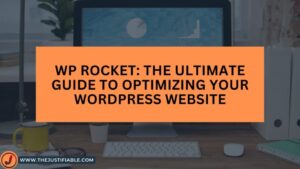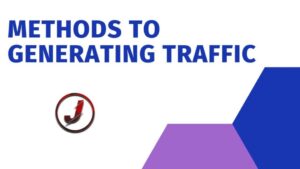Table of Contents
A successful SEO campaign is the best way to get to number one in search rankings. In this article, we will explore effective strategies, essential elements, and actionable steps to create a powerful SEO campaign. Whether you’re new to SEO or looking to refine your approach, this guide will provide you with valuable insights to achieve top rankings.
Key Elements of a Winning SEO Campaign Strategy
A winning SEO campaign strategy requires a blend of research, on-page optimization, and ongoing analysis. I believe focusing on these key elements can significantly boost your chances of achieving top search rankings. Let’s dive into the essential components of an effective SEO campaign.
Most importantly, understanding your target audience and conducting thorough keyword research are foundational steps. Additionally, leveraging technical SEO, creating quality content, and building high-quality backlinks are critical for success. I recommend incorporating these elements into your strategy for a robust and effective SEO campaign.
SEO Services Recommendations
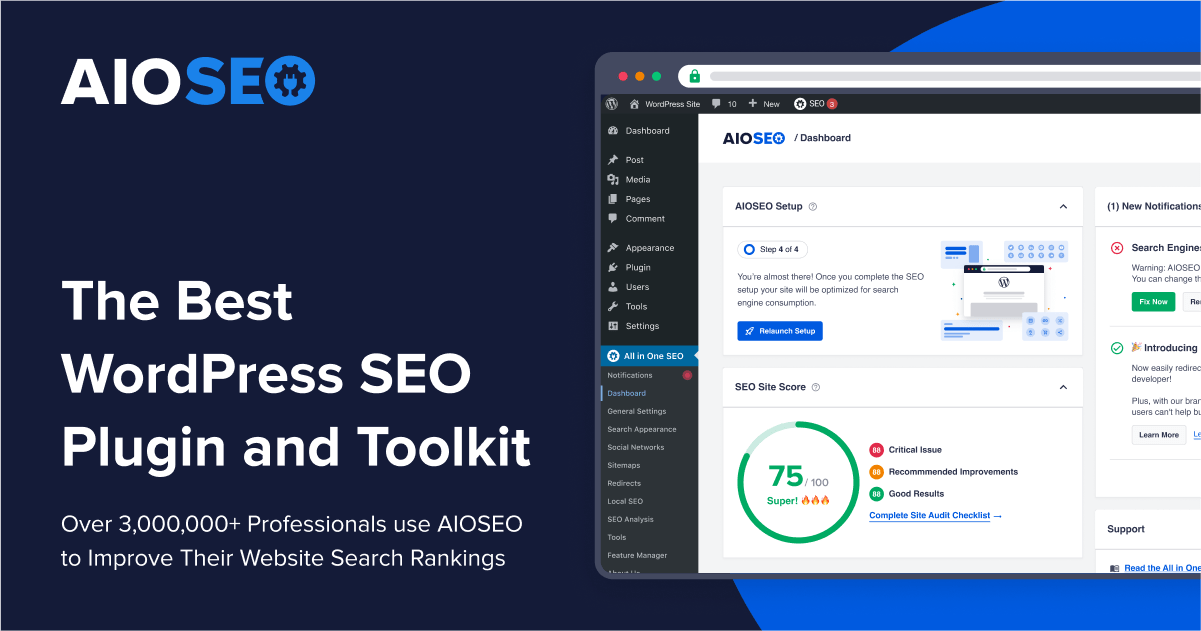 AIOSEO
| 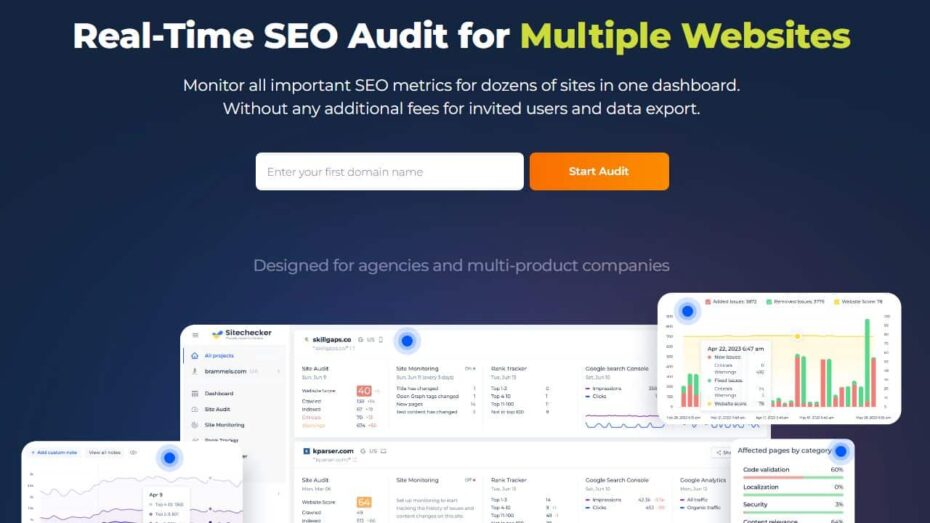 Sitechecker
| 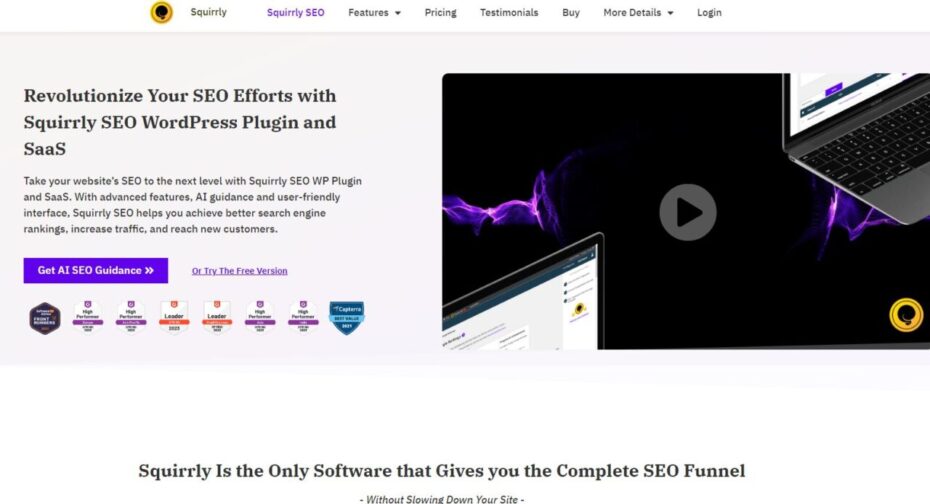 Squirrly
|
Understanding Target Audience and Keyword Research
Identifying your target audience is crucial for any SEO campaign. By understanding their needs, preferences, and search behavior, you can tailor your content to meet their expectations. I advise you to create detailed buyer personas to guide your keyword research and content creation efforts.
Keyword research is the cornerstone of an effective SEO strategy. My recommendation is to use tools like Google Keyword Planner, SEMrush, and Ahrefs to discover high-volume, low-competition keywords relevant to your audience. This will help you attract the right traffic and improve your chances of ranking higher in search results.
Incorporating long-tail keywords into your content strategy can also yield significant benefits. I suggest focusing on these as they often have less competition and higher conversion rates. By targeting specific queries, you can address the unique needs of your audience more effectively.
I strongly believe that regular keyword analysis is essential to stay ahead of trends and shifts in search behavior. Continuously updating your keyword list and adjusting your strategy accordingly will keep your SEO efforts aligned with current market demands.
On-Page SEO Techniques for Higher Rankings
On-page SEO is vital for improving your website’s visibility and ranking. Optimizing elements like meta tags, headings, and images can significantly impact your SEO performance. My advice is to ensure that each page has a unique and compelling meta title and description that includes your primary keyword.
I recommend you to focus on creating informative and engaging headings and subheadings that naturally incorporate keywords. This not only improves readability but also helps search engines understand the structure and relevance of your content.
Using internal linking strategically can enhance the user experience and distribute link equity across your site. I suggest linking to related content within your site to keep visitors engaged and guide them through your content effectively.
Optimizing images by using descriptive file names and alt tags is another critical aspect of on-page SEO. This can improve your site’s accessibility and provide additional opportunities for keyword optimization.
The Importance of Quality Content in SEO
Quality content is the backbone of any successful SEO campaign. Creating valuable, relevant, and engaging content can attract and retain visitors, encouraging them to spend more time on your site. I strongly believe that high-quality content is essential for building trust and authority in your niche.
Incorporating a mix of content types, such as blog posts, videos, infographics, and case studies, can cater to different audience preferences. My suggestion is to diversify your content to keep your audience engaged and encourage sharing across various platforms.
Regularly updating your content to ensure it remains accurate and relevant is crucial for maintaining its value. I advise conducting periodic content audits to identify outdated information and opportunities for improvement.
Encouraging user-generated content, such as reviews and testimonials, can also enhance your site’s credibility and provide fresh content. I recommend you to actively seek and showcase this type of content to build a community around your brand.
Building High-Quality Backlinks Effectively
High-quality backlinks are a significant ranking factor in SEO. Acquiring links from authoritative and relevant websites can boost your site’s credibility and search engine rankings. I suggest focusing on building relationships with industry influencers and guest posting on reputable sites to earn valuable backlinks.
Creating shareable content, such as in-depth guides, research reports, and infographics, can naturally attract backlinks. I recommend producing high-quality resources that others in your industry will want to link to and share with their audience.
Using outreach strategies to connect with bloggers, journalists, and webmasters can help you secure backlinks from reputable sources. My advice is to personalize your outreach messages and highlight the value your content provides to their audience.
Monitoring your backlink profile regularly is essential to ensure the quality and relevance of your links. I strongly believe in using tools like Serpstat and Moz to track your backlinks and disavow any harmful links that could negatively impact your SEO.
Leveraging Technical SEO for Optimal Performance
Technical SEO involves optimizing your website’s infrastructure to ensure it is easily crawlable and indexable by search engines. Ensuring your site has a clear, logical structure and a user-friendly design is fundamental. I advise focusing on improving site speed, mobile-friendliness, and secure connections (HTTPS) as key technical SEO factors.
Creating and submitting an XML sitemap to search engines helps them understand your site’s structure and index your pages more efficiently. My recommendation is to keep your sitemap updated and ensure it includes all important pages.
Implementing structured data, or schema markup, can enhance your search listings with rich snippets, making them more attractive to users. I suggest using schema markup to provide additional context about your content to search engines, improving your chances of appearing in rich results.
Regularly auditing your site for technical issues, such as broken links, duplicate content, and crawl errors, is crucial for maintaining optimal performance. I believe using tools like Sitechecker and Screaming Frog can help you identify and resolve these issues promptly.
Measuring and Analyzing SEO Success Metrics
Tracking and analyzing your SEO performance is essential to understand what’s working and where improvements are needed. I recommend setting up Kissmetrics and Hotjar to monitor key metrics like organic traffic, bounce rate, and keyword rankings.
Defining clear goals and KPIs for your SEO campaign can help you measure success more effectively. My advice is to focus on metrics that align with your business objectives, such as conversion rates and lead generation, rather than just vanity metrics.
Regularly reviewing your performance data and adjusting your strategy based on insights is vital for continuous improvement. I suggest conducting monthly or quarterly SEO audits to evaluate your progress and identify new opportunities.
Using advanced tools and reports, such as heatmaps and user behavior analytics, can provide deeper insights into how visitors interact with your site. I believe these tools can help you optimize your content and user experience, ultimately driving better SEO results.
Advanced SEO Tactics for Competitive Markets
In competitive markets, advanced SEO tactics are crucial to stand out and achieve top rankings. I recommend focusing on implementing cutting-edge strategies that can give you an edge over competitors. These include schema markup, voice search optimization, mobile-first approaches, local SEO, and leveraging social media.
Most importantly, staying updated with the latest SEO trends and techniques can help you maintain a competitive advantage. I strongly believe that incorporating these advanced tactics will significantly enhance your SEO campaign’s effectiveness and drive sustainable growth.
Implementing Schema Markup for Enhanced Visibility
Schema markup is a powerful tool that can enhance your site’s visibility in search results by providing additional context to search engines. My recommendation is to use schema markup to highlight critical information like reviews, events, and product details. This can help your content stand out with rich snippets, which can improve click-through rates.
I advise you to start by identifying the most relevant schema types for your content and implementing them on your key pages. Tools like Google’s Structured Data Markup Helper can simplify this process. By doing so, you can provide search engines with a better understanding of your site’s content, leading to improved rankings.
Most importantly, regularly updating and maintaining your schema markup is crucial to ensure it remains accurate and relevant. I recommend you to audit your structured data periodically to identify and fix any issues that may arise. This proactive approach will help you maximize the benefits of schema markup.
I believe leveraging schema markup can significantly enhance your site’s search presence and user experience. It is a relatively simple yet highly effective way to boost your SEO performance in competitive markets.
Utilizing Voice Search Optimization Techniques
Voice search is becoming increasingly popular, and optimizing for it can give you a competitive edge. I suggest focusing on natural language processing and conversational keywords to align with how users perform voice searches. This involves understanding the intent behind voice queries and tailoring your content accordingly.
My recommendation is to create content that directly answers common questions related to your industry. Use tools like AnswerThePublic to identify these questions and incorporate them naturally into your content. This approach can help you capture voice search traffic more effectively.
I advise you to optimize for local voice searches by including location-specific keywords and phrases. Voice search often involves queries like “near me,” so ensuring your content is relevant to local audiences can improve your chances of ranking higher in voice search results.
Most importantly, ensure your website is mobile-friendly, as most voice searches are conducted on mobile devices. I recommend you to prioritize fast loading times and a responsive design to provide an optimal user experience for voice search users.
Creating a Mobile-First SEO Strategy
With the majority of searches happening on mobile devices, a mobile-first SEO strategy is essential. I strongly believe that optimizing your website for mobile users can significantly enhance your search rankings and user experience. Start by ensuring your site is fully responsive and loads quickly on mobile devices.
I recommend using Google’s Mobile-Friendly Test to identify any issues and make necessary adjustments. Mobile optimization includes using larger fonts, touch-friendly buttons, and streamlined navigation to improve usability. These changes can make a significant difference in how users interact with your site.
I suggest focusing on mobile-specific SEO practices, such as optimizing for local searches and using AMP (Accelerated Mobile Pages) to improve loading times. These techniques can enhance your site’s performance on mobile devices and increase your chances of ranking higher in mobile search results.
Most importantly, continuously monitor and improve your mobile site’s performance. I advise you to use tools like Google Analytics to track mobile user behavior and identify areas for improvement. A data-driven approach will help you refine your mobile-first SEO strategy and achieve better results.
Harnessing the Power of Local SEO
Local SEO is crucial for businesses targeting specific geographic areas. I recommend optimizing your website and content for local searches to attract nearby customers. Start by claiming and optimizing your Google My Business listing, ensuring all information is accurate and up-to-date.
I advise you to include local keywords naturally in your content, such as city names and neighborhood terms. Creating localized content, like blog posts about local events or news, can also improve your local SEO efforts. This approach can help you connect with your community and attract more local traffic.
Most importantly, encourage satisfied customers to leave positive reviews on your Google My Business listing and other review sites. I strongly believe that reviews play a significant role in local SEO, influencing both rankings and customer trust.
I suggest building local backlinks by partnering with local businesses, sponsoring local events, or getting featured in local news outlets. These backlinks can boost your local search visibility and establish your business as a trusted local authority.
Using Social Media to Boost SEO Performance
Social media can play a significant role in boosting your SEO performance. I recommend integrating social media into your SEO strategy to enhance your online presence and drive more traffic to your site. Start by sharing your content across various social media platforms to increase its reach and visibility.
I advise you to engage with your audience on social media by responding to comments, participating in discussions, and sharing valuable insights. This interaction can help build a loyal following and encourage social sharing, which can indirectly impact your SEO.
Most importantly, use social media to build relationships with influencers and industry leaders. I believe that collaborating with influencers can amplify your content’s reach and attract high-quality backlinks, which can positively affect your search rankings.
I suggest tracking your social media performance using analytics tools to understand what content resonates most with your audience. This data can help you refine your social media strategy and align it more closely with your SEO goals, ultimately driving better results.
Common SEO Mistakes and How to Avoid Them
Avoiding common SEO mistakes is crucial for a successful SEO campaign. I advise you to be aware of these pitfalls to ensure your SEO efforts are effective. Most importantly, addressing these issues early can save you time and improve your search rankings.
My recommendation is to focus on key areas such as keyword usage, technical health, recovery strategies, and balancing user experience. By understanding and avoiding these mistakes, you can optimize your SEO strategy and achieve better results.
Avoiding Keyword Stuffing and Over-Optimization
Keyword stuffing is a common mistake that can harm your SEO campaign. I suggest using keywords naturally throughout your content to maintain readability and effectiveness. Over-optimization can lead to penalties, so balance is key.
My recommendation is to focus on creating high-quality, informative content that provides genuine value. Keywords should enhance your content, not dominate it. I strongly believe that a user-first approach will yield better long-term results.
I advise you to use variations of your primary keyword to avoid repetition and improve your content’s flow. Tools like Google’s Keyword Planner can help identify related keywords. This strategy will keep your content engaging and SEO-friendly.
Most importantly, regularly review your content for over-optimization signs. I recommend you to make adjustments as needed to maintain a natural, user-friendly tone. This proactive approach can help you avoid penalties and improve your SEO performance.
Ensuring Your Website is Free from Technical Errors
Technical errors can severely impact your SEO efforts. My advice is to regularly audit your website to identify and fix issues like broken links, slow loading times, and crawl errors. These technical aspects are crucial for maintaining a healthy site.
I recommend using tools like Sitechecker and Screaming Frog to perform comprehensive site audits. These tools can help you detect and resolve technical issues quickly, ensuring your website remains optimized for search engines.
Most importantly, ensure your site is mobile-friendly. I believe that a responsive design can improve user experience and boost your rankings. Mobile optimization is a critical factor in today’s SEO landscape, and it should not be overlooked.
I suggest implementing structured data to enhance your site’s search visibility. This can help search engines better understand your content and display rich snippets, which can improve click-through rates. Regularly updating your structured data is essential for maintaining accuracy.
Strategies to Recover from Google Penalties
Recovering from Google penalties requires a strategic approach. I recommend identifying the cause of the penalty first. Use Google Search Console to check for manual actions or algorithmic updates that may have affected your site.
My suggestion is to address the identified issues promptly. This may involve removing harmful backlinks, fixing content quality issues, or addressing technical problems. A thorough cleanup is crucial for recovery.
I strongly believe that submitting a reconsideration request to Google can expedite the recovery process. Ensure you document all the steps taken to resolve the issues and provide a clear explanation. Transparency and thoroughness are key.
Most importantly, focus on building a sustainable SEO strategy moving forward. I advise you to follow Google’s guidelines closely and prioritize quality over quick fixes. This long-term approach will help you avoid future penalties and improve your site’s performance.
Balancing User Experience and SEO Requirements
Balancing user experience and SEO requirements is essential for a successful SEO campaign. I recommend prioritizing user-friendly design and navigation to enhance the overall experience. A positive user experience can lead to higher engagement and better rankings.
My advice is to create content that is both informative and engaging. Use headings, bullet points, and visuals to make your content easy to read and understand. This approach can improve user retention and satisfaction.
I suggest optimizing your site’s speed and performance. Fast-loading pages provide a better user experience and can positively impact your SEO. Tools like Google PageSpeed Insights can help you identify areas for improvement.
Most importantly, ensure your site is accessible and usable on all devices. I strongly believe that a mobile-first approach is crucial in today’s digital landscape. By focusing on these aspects, you can create a balanced strategy that meets both user and SEO needs.
Developing a Long-Term SEO Plan for Sustained Success
Developing a long-term SEO plan is crucial for sustained success. I recommend focusing on creating a strategy that adapts to changes and continues to deliver results. Most importantly, a well-structured plan will help you stay ahead of competitors and maintain top rankings.
I advise you to prioritize setting realistic goals, adapting to algorithm changes, investing in continuous learning, and creating sustainable content. These elements are essential for a robust SEO strategy that can withstand the test of time and industry shifts.
Setting Realistic SEO Goals and Milestones
Setting realistic SEO goals and milestones is fundamental for tracking progress. I suggest defining clear, achievable objectives that align with your business goals. This approach will help you measure success and make necessary adjustments.
I recommend breaking down your goals into smaller, manageable milestones. This will make it easier to track progress and stay motivated. My advice is to use tools like Google Analytics to monitor key metrics and ensure you’re on the right path.
Most importantly, regularly review and adjust your goals based on performance data. I strongly believe that flexibility is key to staying on track and achieving long-term success. Continuous assessment will help you identify areas for improvement and capitalize on opportunities.
I advise you to celebrate small wins along the way. Recognizing achievements can boost morale and keep your team focused on the end goal. Acknowledging progress, no matter how small, is crucial for maintaining momentum.
Adapting to Algorithm Changes and Industry Trends
Adapting to algorithm changes and industry trends is vital for maintaining your SEO rankings. I recommend staying informed about the latest updates from search engines and industry developments. This will help you adjust your strategy proactively.
My suggestion is to follow reputable SEO blogs, attend webinars, and participate in industry forums. These resources provide valuable insights and keep you updated on best practices. I believe that being well-informed is essential for effective adaptation.
Most importantly, analyze the impact of algorithm changes on your site. I advise you to use tools like Google Search Console to monitor performance and identify areas needing improvement. This data-driven approach will help you make informed decisions.
I suggest conducting regular SEO audits to ensure your site remains compliant with current guidelines. These audits can help you detect issues early and implement necessary changes promptly. Staying proactive will keep your SEO strategy resilient.
Investing in Continuous Learning and Improvement
Continuous learning and improvement are crucial for long-term SEO success. I recommend investing in SEO training and professional development for your team. This ensures they stay updated with the latest techniques and trends.
My advice is to encourage your team to obtain SEO certifications from reputable organizations. These credentials validate their skills and enhance your team’s expertise. I believe that a knowledgeable team is your greatest asset.
Most importantly, foster a culture of continuous improvement. I suggest setting aside time for regular training sessions and knowledge-sharing meetings. This keeps your team engaged and motivated to stay at the forefront of SEO.
I recommend leveraging online courses, workshops, and conferences. These platforms offer opportunities to learn from industry experts and network with peers. Continuous learning will keep your SEO strategy innovative and effective.
Creating a Sustainable Content Strategy
Creating a sustainable content strategy is key to maintaining SEO success. I advise you to focus on producing high-quality, evergreen content that remains relevant over time. This approach ensures long-term value and consistent traffic.
My recommendation is to conduct thorough keyword research to identify topics with lasting relevance. Use tools like Ahrefs and SEMrush to find keywords that align with your audience’s needs. I believe that targeting evergreen topics will yield sustainable results.
Most importantly, update and repurpose existing content to keep it fresh. I suggest revisiting old posts and adding new information or perspectives. This practice can boost your rankings and provide ongoing value to your audience.
I advise you to establish a content calendar to plan and organize your publishing schedule. Consistency is crucial for building authority and trust. A well-structured calendar will help you maintain a steady flow of quality content.
Tools and Resources to Enhance Your SEO Campaign
Using the right tools and resources can significantly enhance your SEO campaign. I believe that leveraging advanced SEO tools can provide valuable insights and improve your strategy. Most importantly, staying informed and utilizing these resources will help you achieve better results.
My recommendation is to explore various tools and guides that can assist you in optimizing your site. From keyword research to performance tracking, these resources are essential for a successful SEO campaign.
Must-Have SEO Tools for Comprehensive Analysis
Having the right SEO tools is crucial for comprehensive analysis. I suggest using tools like Woopra to monitor your site’s performance. These tools provide insights into traffic, keywords, and user behavior, helping you make informed decisions.
I recommend SEMrush and SEOPowerSuite for in-depth keyword research and competitor analysis. These platforms offer valuable data that can guide your SEO strategy. I strongly believe that investing in these tools will give you a competitive edge.
My advice is to use Screaming Frog for technical SEO audits. This tool can identify issues like broken links and duplicate content. Addressing these problems can improve your site’s health and rankings.
Most importantly, regularly update your toolkit to stay current with industry changes. New tools and features are continually being developed, so staying updated can enhance your SEO efforts.
Free Resources and Guides for Ongoing Learning
There are numerous free resources available for ongoing SEO learning. I recommend exploring platforms like Moz and HubSpot for comprehensive guides and tutorials. These resources can help you stay updated with the latest SEO trends and best practices.
I suggest subscribing to industry blogs and newsletters, such as Search Engine Journal and SEO Roundtable. These sources provide timely updates and expert insights, keeping you informed about algorithm changes and new strategies.
Most importantly, take advantage of free online courses offered by Google and Coursera. These courses cover various SEO topics and can enhance your knowledge and skills. Continuous learning is key to staying competitive.
I advise you to participate in SEO forums and communities, like Reddit’s SEO subreddit and the Moz Q&A forum. Engaging with peers and experts can provide valuable advice and support, helping you navigate SEO challenges.
Collaborating with SEO Experts and Agencies
Collaborating with SEO experts and agencies can significantly boost your campaign’s success. I recommend seeking professional help if you’re facing complex SEO issues. Experts can provide tailored strategies and insights that align with your goals.
I suggest researching and choosing reputable agencies with proven track records. Look for case studies and client testimonials to gauge their effectiveness. I believe that partnering with the right agency can enhance your SEO efforts.
My recommendation is to maintain open communication with your SEO partners. Regular updates and feedback can ensure that your campaign stays on track and meets your objectives. Collaboration and transparency are crucial for success.
Most importantly, leverage the expertise of your SEO partners to stay ahead of industry trends. Their knowledge and experience can provide valuable guidance, helping you adapt to changes and improve your strategy.
Leveraging Analytics for Data-Driven Decisions
Leveraging analytics is essential for making data-driven decisions in your SEO campaign. I advise using Google Analytics to track key performance indicators like traffic, bounce rates, and conversion rates. This data can help you understand your audience and optimize your strategy.
I recommend setting up goals and funnels in Google Analytics to measure specific actions and outcomes. This can provide insights into user behavior and highlight areas for improvement. I strongly believe that data-driven decisions lead to better results.
My suggestion is to use tools like Hotjar for heatmaps and user recordings. These tools can reveal how users interact with your site, allowing you to make informed changes to improve usability and engagement.
Most importantly, regularly review and analyze your data to identify trends and patterns. I advise you to adjust your SEO strategy based on these insights to continually improve performance and achieve your goals.




